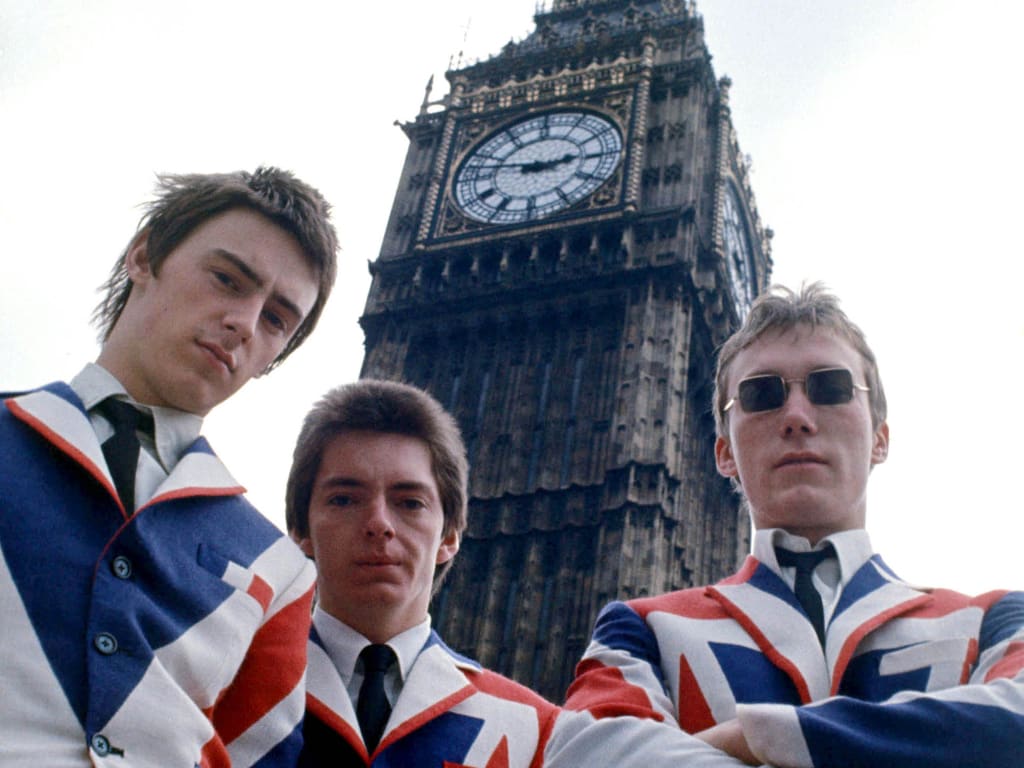Introducing The Jam
The Greatest Unknown Band

What if I told you there was a band that combined the best elements of three of the most influential English bands of the sixties, namely the mod sound and driving rhythm of The Who, the catchy melodic pop of The Beatles, and the English sensibilities of the Kinks and fused them with the ferocious speed and raw energy of Punk? The band in question is The Jam, perhaps one of the greatest bands that most people outside the UK have never heard of. Rising out of the obscurity of Woking, a town in Surrey, England, The Jam made their first big splash in 1977, widely regarded as the year when Punk Rock violently exploded into the mainstream. Led by guitarist and lead vocalist/songwriter Paul Weller, only eighteen at the time, the band also featured Rick Buckler on drums and Bruce Foxton on bass. Together, this pop-punk power trio successfully married the speed and immediacy of punk with the more polished sound and lyrics of British pop music and to create a wholly unique and timeless sound among the punk/new wave landscape.
Appearing on Britain's star-making show Top of the Pops in May 1977, the group performed their first ever single, "In the City," two minutes and sixteen seconds of relentless power chords, pulsating bass, and rapid fire drums set behind an impossible to forget melody, one which clearly revealed the band's love for sixties British pop, i.e. The Beatles and The Who. The success of the single paved the way for the band's debut album of the same name, released later that year. Although they cut their musical teeth in the same clubs frequented by the twin pillars of the British punk scene, The Sex Pistols and The Clash, The Jam distanced themselves from the rest of the Punk pack, not only in sound but in style, with their mod suits and shaggy hair that made them more akin to the early Who than The Sex Pistols.
Weller's songs, despite having the driving chords and furious speed which were the main hallmarks of punk, had a decidedly more melodic and polished sound than most of his contemporaries while never betraying the snarling anger and simmering angst of the movement. Although only eighteen, Weller's lyrics burned with a maturity which seemed to place him years beyond his actual age. In songs like "The Modern World" and "News of the World," not to mention a slew of others, Weller raged against the horror, hypocrisy, and absurdity of the profoundly sick society in which he found himself with astounding authority and depth. Take, for instance, these lyrics from "Going Underground" from their fourth album, Setting Sons: (What you see is what you get / You've made your bed, you'd better lie in it / You choose your leaders and place your trust / As their lies wash you down and their promises rust). Over their subsequent albums, Weller's songwriting only evolved and deepened, resulting in many razor sharp satires of modern life, from the hypocrisies of politics and the music industry as well as the pitfalls of fame.
1978's All Mod Cons, the Jam's third and arguably most well-received album, both critically and commercially, featured many of the clearest indications of the colossal leaps Weller's songwriting had taken since their debut. In songs like "To Be Somebody (Didn't We Have a Nice Time)," "Mr. Clean," and of course the incredible album closer, "Down in the Tube Station at Midnight," Weller's knack for biting satire as well as descriptive lyrical storytelling reach their zenith. The album's closer in particular sounds like no other song from the punk/new wave scene. The track's unique arrangement, harmonies, and narrative lyrics make it a genre-defying and timeless masterpiece among the Jam's catalogue.
All told, the Jam released six studio albums, the last being The Gift, before they disbanded in 1982. During their short life however, they captured legions of devoted fans whose lives were shaped by the message of their music and words and the urgency of their sound. Despite their popularity in England, they never really took off in the States. Much of this might be due to the quintessential Englishness of Weller's lyrics, as they often deal with specific aspects of British politics and society. However, the Jam's attitudes towards these often ludicrous aspects of life resonate with anyone who all too often feels like a stranger in this weird world, deeply confused and angered by the countless injustices and hypocrisy they witness all around them. In the decades since their breakup, their music continues to give a strong voice to those who refuse to just blindly accept the absurdities of this so called civilized society of ours. For all these reasons, and a plethora of others not discussed, the Jam are definitely worth a listen for any serious music fan.






Comments
There are no comments for this story
Be the first to respond and start the conversation.